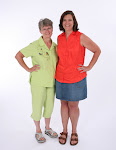Calcium - CitraCal. It comes in chocolate and caramel. The chocolate is yummy. I have haven't tried the caramel. This is also chewable. I have found this at Walmart, Kroger, and Giant Eagle. You want to make sure you do NOT get the calcium that is carbonate. Your body does not absorb the calcium the way it should. This is especially important if you've had the gastric bypass.
Vitamin D - Also found at GNC. It's small and it's easy to swallow.
Biotin - Also found at GNC. I take this because my hair has started to shed more than normal. From what has been explained to me by other people who have had WLS and my doctor, this is normal. That's one reason it is so important to get your protein in.
Protein - The best one I have found for me is Whey Protein. I have gotten it from GNC and Walmart. You'll have to find one that you like and can tolerate. There are many sites and stores you can visit to find different proteins.
There are a few things to remember:
- Your stomach opening is only the size of a dime. My nutritionist said if the pill is the size of an eraser, you can swallow it. If it's bigger, you'll need to crush it up or cut in half. That's why I have the chewable.
- The items listed above is what I use. This does not mean it's OK for you. You will need to talk to your doctor and see what they want you to do!






